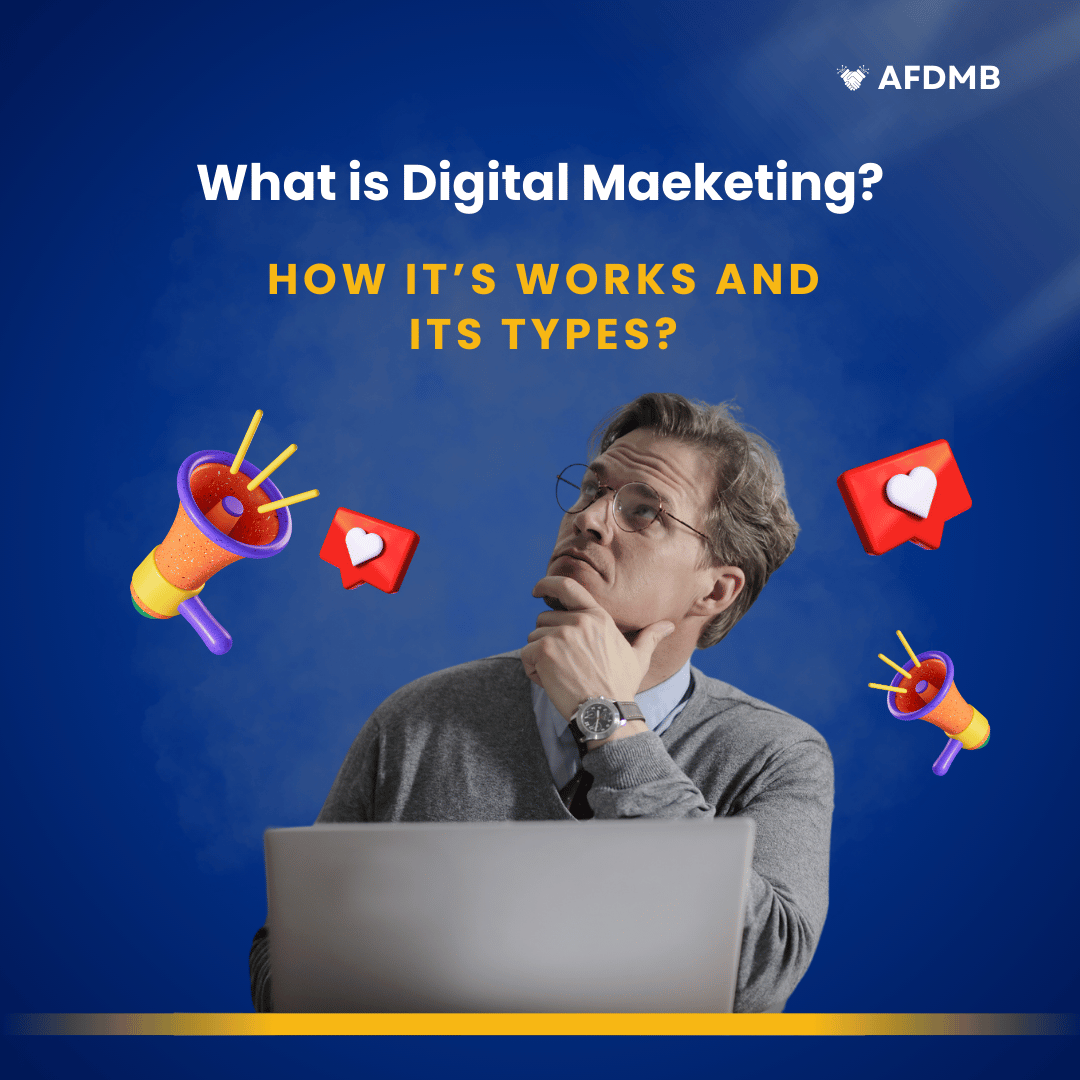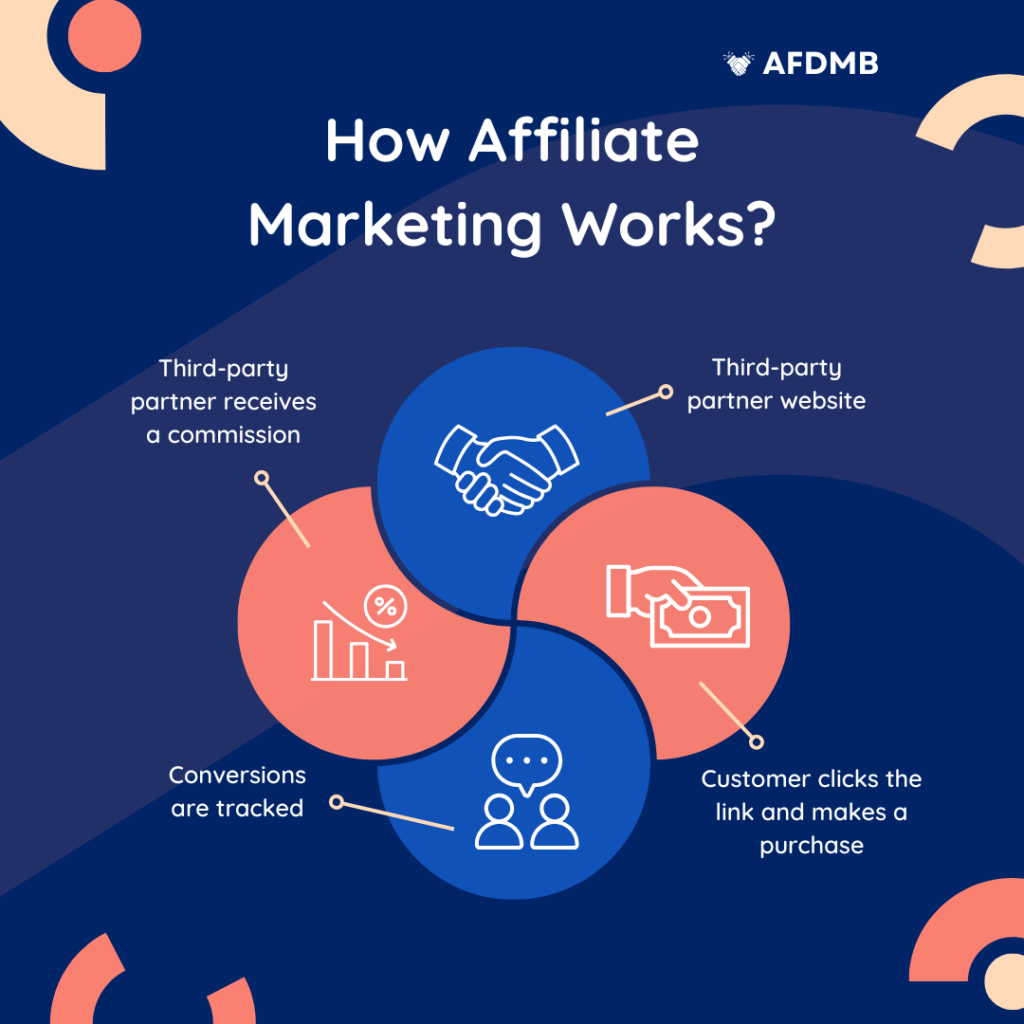What is Digital Marketing?
Digital marketing is the use of digital channels, such as the internet, social media, search engines, and other digital platforms, to promote products, services, and brands. It involves leveraging electronic devices and online tools to reach and engage with potential customers. Unlike traditional marketing, digital marketing allows for more precise targeting, measurement, and interaction with audiences.

How Does Digital Marketing Work?
Digital marketing works by using various online tactics and strategies to connect with potential customers where they spend much of their time: online. Here’s how it typically works:
- Setting Goals: The first step is to define clear marketing objectives, such as increasing brand awareness, generating leads, boosting sales, or improving customer engagement.
- Understanding the Audience: Marketers need to identify and understand their target audience, including their demographics, interests, and online behaviors. This helps in creating personalized and relevant marketing messages.
- Creating Content: Content creation is at the heart of digital marketing. This includes creating valuable and engaging content such as blog posts, videos, infographics, and social media posts that resonate with the target audience.
- Choosing Digital Channels: Marketers select the most effective digital channels to reach their audience. This can include search engines, social media platforms, email, websites, and mobile apps.
- Implementing Strategies: Various strategies are implemented to drive traffic, engagement, and conversions. This may involve search engine optimization (SEO), pay-per-click (PPC) advertising, social media marketing, email marketing, and more.
- Analyzing Performance: Digital marketing allows for real-time tracking and measurement of campaign performance. Marketers use analytics tools to monitor key metrics, such as website traffic, conversion rates, click-through rates, and return on investment (ROI).
- Optimizing Campaigns: Based on the performance data, marketers can make data-driven decisions to optimize their campaigns for better results. This may involve adjusting targeting, refining content, or reallocating budgets.
Types of Digital Marketing
- Search Engine Optimization (SEO): SEO involves optimizing a website to rank higher in search engine results pages (SERPs) for relevant keywords. The goal is to increase organic (non-paid) traffic to the website. This is achieved through on-page optimization, off-page optimization, and technical SEO practices.
- Pay-Per-Click Advertising (PPC): PPC advertising allows marketers to display ads on search engines and other platforms. Advertisers pay a fee each time their ad is clicked. Google Ads is one of the most popular PPC platforms. PPC provides quick visibility and can drive immediate traffic to a website.
- Content Marketing: Content marketing focuses on creating and distributing valuable, relevant, and consistent content to attract and engage a target audience. This can include blog posts, articles, videos, infographics, podcasts, and more. The goal is to build brand authority and trust over time.
- Social Media Marketing: Social media marketing involves using social media platforms like Facebook, Instagram, Twitter, LinkedIn, and TikTok to promote products, services, and brands. It includes creating and sharing content, running paid ads, and engaging with followers to build a loyal community.
- Email Marketing: Email marketing involves sending targeted emails to a list of subscribers. These emails can include promotional offers, newsletters, product updates, and personalized content. Email marketing is effective for nurturing leads, building customer relationships, and driving conversions.
- Influencer Marketing: Influencer marketing leverages the reach and influence of social media influencers to promote products and services. Influencers can create authentic content and endorsements that resonate with their followers, driving brand awareness and sales.
- Affiliate Marketing: Affiliate marketing is a performance-based strategy where affiliates promote a merchant’s products or services and earn a commission for each sale or lead generated through their referral. This type of marketing leverages the reach and credibility of affiliates to drive conversions.
- Mobile Marketing: Mobile marketing focuses on reaching users on their mobile devices through SMS, MMS, mobile apps, and mobile-optimized websites. With the increasing use of smartphones, mobile marketing is essential for engaging with on-the-go consumers.
- Video Marketing: Video marketing involves creating and sharing videos to promote a brand, product, or service. This can include explainer videos, product demos, customer testimonials, live streams, and more. Videos are highly engaging and can effectively convey information and emotions.
- Online PR (Public Relations): Online PR involves managing a brand’s online reputation by securing positive online coverage, responding to reviews, and engaging with online communities. This helps build credibility and trust with the audience.
